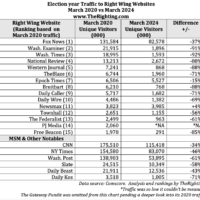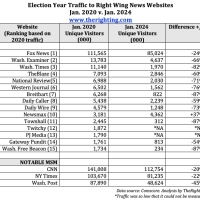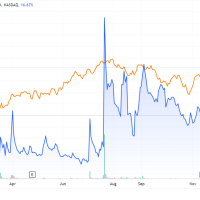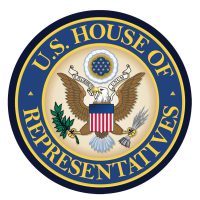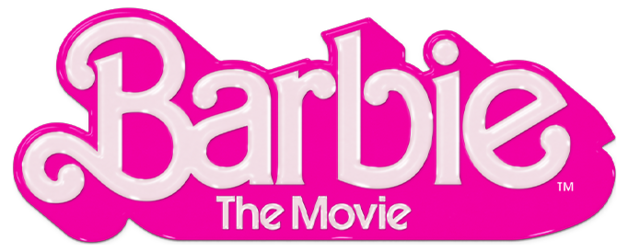
Right Wing Outrage May Have Fueled Barbie’s Box Office Success
By Amanda Coopersmith, July 31, 2023
Memes mocking right-wing commentators’ outrage over the new “woke” Barbie abounded following the film’s premier, helping to propel “Barbie” into a record-breaking opening weekend.
Greta Gerwig grabbed the title for the female director with the largest box-office opening after “Barbie” raked in $155 million. The movie, which was heavily marketed as a comical jaunt through a candy-colored Barbie universe and into the real world, was unexpectedly controversial, with far-right outlets calling it a “bait and switch for preachy propaganda ” and “the most woke movie I’ve ever seen.”
The Daily Wire’s Ben Shapiro dedicated 42 minutes of his show reading pages of handwritten notes chronicling every plot hole, feminist comment, and “inappropriate” sexual innuendo for a movie he claims was made for “moms and their 8-year-old daughters.” The movie is rated PG-13. He called the film the worst movie ever and went so far as to set a pair of Barbie and Ken dolls on fire.
X-Man Elon Musk also weighed in, saying “if you take a shot every time Barbie says the word ‘patriarchy’, you will pass out before the movie ends.”
Ginger Gaetz, wife of Florida Rep. Matt Gaetz, also complained about the film’s lack of family values and Ken’s “disappointingly low T,” which was picked up by the Instagram fashion outlet dietprada and led to a variety of ironic “low T” content.
“What I Want to Watch”
If anything, the right wing pushback only seemed to stoke “Barbie” supporters online and convert others who were initially uninterested in the big-budget corporate picture. Shapiro was roasted across the internet for spending almost half the movie’s runtime complaining about a film he was “forced” to see. A meme that showed a right-wing anti-“Barbie” headline overlayed with a Google search for “where to see Barbie” made the rounds last weekend on Instagram.
On Twitter, writer @technicallyRon created a series of fake “Barbie” posters using conservatives’ 1-star reviews from the social movie review platform Letterbox’d “because it makes the film seem ever cooler.” The posters, which contained headlines like “the feminist agenda will kill us all,” were shared over 70,000 times and received over 300,000 likes.
“I didn’t want to watch Barbie initially cause I was like eh, capitalist hype,” said Ananya Srinivasan, 24 of San Francisco. After seeing one of @techicallyRon’s fake posters calling the movie “A Pink Acid Trip that feels like being slapped by a lot of confusingly attractive people,” she re-evaluated: “this is exactly what I want to watch.”
Barbie’s Demographics
According to Parrot Analytics, nearly three quarters of “Barbie” moviegoers were 13-30, despite being the generations that were least likely to have played with the dolls. Barbie’s popularity waned in the late 1990s and early 2000s as other more diverse and representative dolls like Bratz and American Girl Doll began eating up market share. Barbie was also regularly criticized for promoting unrealistic body standards. Gerwig acknowledged in an interview with The New York Times that she “grew up with a mom who was kind of against Barbie.” Mattel did not release their first size-inclusive dolls until 2016 when they finally acknowledged it was do or die: CNN revealed that Barbie sales in 2015 had reached their lowest in 23 years. Girls who grew up with size-inclusive Barbies are not yet old enough to see PG-13 films without an adult.
In a poll of 500 respondents conducted by Film Threat, only 24.4 percent of those interested in seeing “Barbie” were driven by “nostalgia” - primarily GenX viewers – while 25% of Zoomers reported that the “memes spawned by the film’s marketing” had piqued their interest.
Is Barbie Really “Woke”?
Gerwig said she was surprised by the right’s reaction, as she wasn’t aiming to make a “feminist” film. “My hope for the movie is that it’s an invitation for everybody to be part of the party and let go of the things that aren’t necessarily serving us as either women or men,” Gerwig told the Times.
Despite the use of the word “patriarchy,” which joins “Critical Race Theory” as a right-wing trigger word, Barbie feminism is well-worn: women experience double standards, are underrepresented in leadership, and still feel self-conscious and sometimes unsafe in their bodies. If anything, the film is more a self-aware dig at Mattel for thinking they could effectively rebrand Barbie and fix patriarchy by making her capable of “everything” in her alternative candy-colored universe.
Despite reports that “Barbie” execs initially wanted Gerwig to remove a scene in which America Ferrera’s teenage daughter calls Barbie a “fascist,” the winner in this movie controversy is ultimately none other than Mattel: they’ve spent years trying to rebrand Barbie, and now conservatives have helped turn their bubble gum pink property into a de-facto feminist icon. The brand is already lining up other toys for their big-screen debuts with 14 films in the works, including films for the recently rebooted Polly Pocket doll and the flagging American Girl. Well played.
Amanda Coopersmith is a Stanford-techie-turned-journalist who writes at the intersections of tech, gender, LGBTQ+ issues, and politics. She is a Master’s student in Cultural Reporting and Criticism at NYU Journalism. @acoopersmith4
Interested in more news about right-wing media curated especially for mainstream audiences? Subscribe to our free daily newsletter.
If anything, the right wing pushback only seemed to stoke Barbie supporters online and convert others who were initially uninterested in the big-budget corporate picture.


